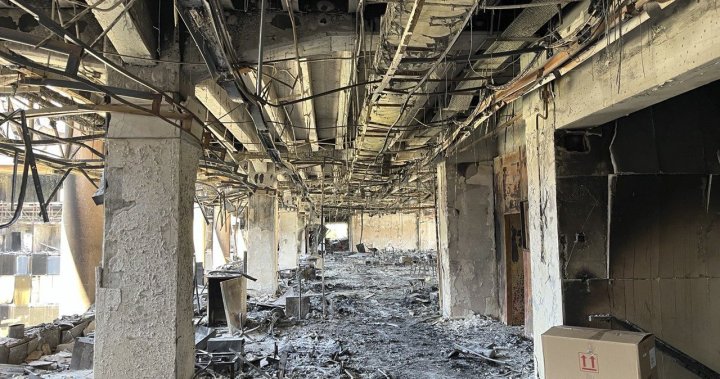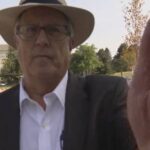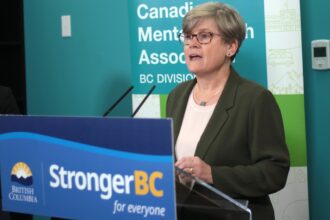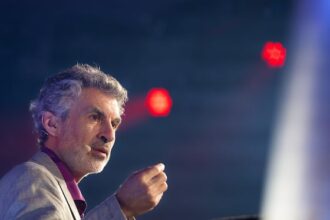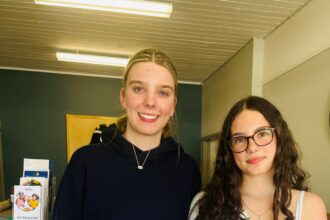As missiles streaked across Middle Eastern skies this week, their impact reverberated thousands of kilometers away in Edmonton, where both Iranian and Jewish community members watched with mounting anxiety as regional tensions escalated to dangerous new heights.
“Every phone call from family becomes precious,” said Sara Ahmadi, who moved to Edmonton from Tehran eight years ago. “We’re constantly checking news updates, wondering if our loved ones are safe. This isn’t just politics for us—it’s our families caught in the crossfire.”
The latest round of hostilities between Iran and Israel has created ripple effects throughout Edmonton’s diverse communities. After Israel’s strike on Iran’s embassy compound in Damascus on April 1 killed several Revolutionary Guard commanders, Iran responded Tuesday with a direct missile attack on Israel. This unprecedented direct confrontation between the two regional powers has heightened fears of a wider conflict.
For Edmonton’s estimated 4,000-strong Iranian community, the situation represents not just geopolitical maneuvering but genuine worry for relatives living under increasing military threats. Meanwhile, Jewish community leaders express concern about rising antisemitism locally that often accompanies Middle East conflicts.
“We’ve seen a disturbing pattern where tensions overseas translate to increased hostility here at home,” explained Rabbi David Cohen of Congregation Beth Israel. “Members of our community have reported uncomfortable encounters and heated exchanges about a conflict happening halfway around the world.”
The Jewish Federation of Edmonton has reported increased security measures at community centers and synagogues—a precautionary step that has become sadly routine during periods of heightened tensions in the Middle East.
What makes Edmonton unique is how these communities have worked to maintain respectful dialogue despite their differences. At the University of Alberta, student organizations representing both communities recently held a joint forum focused on peace-building and mutual understanding.
“We can disagree about politics while still recognizing our shared humanity,” said Mohammad Farhadi, president of the Iranian Students’ Association. “Many of us have built lives here precisely because we believe in Canada’s commitment to pluralism and peaceful coexistence.”
Local political leaders have encouraged this spirit of unity. Mayor Amarjeet Sohi released a statement calling for Edmontonians to “stand together against hatred in all its forms” and reminding residents that “international conflicts should never become a reason for division in our own community.”
Economic considerations also loom large for many Iranian-Canadians who maintain business connections with their homeland. Sanctions and banking restrictions have already complicated family support systems, and further escalation threatens to make financial transfers even more difficult.
“My parents depend on what I can send them,” explained Reza Mohammadi, who owns a small engineering firm in Edmonton. “Every new round of sanctions makes it harder to support them, and I worry about what might happen if this conflict continues to grow.”
Community support networks have mobilized to help those affected. The Iranian Heritage Society of Edmonton has established counseling services for community members experiencing anxiety or depression related to the conflict, while several local synagogues have organized prayer vigils for peace.
Historical context matters in understanding these community responses. Many Iranian-Canadians in Edmonton arrived following the 1979 Islamic Revolution, while others came more recently seeking economic opportunities or fleeing political persecution. The Jewish community has deep roots in the city dating back to the early 20th century.
As world leaders call for de-escalation, Edmonton’s community leaders emphasize that most people—regardless of background—share the same fundamental desire for peace and stability. Several interfaith initiatives have gained momentum in recent weeks, focusing on shared values rather than geopolitical differences.
“What happens overseas matters deeply to us,” said Esther Goldstein, who helps coordinate community outreach at the Edmonton Jewish Community Centre. “But what happens here in Edmonton matters too. How we treat each other during difficult times defines who we are as Canadians.”
As international tensions continue to evolve, the question remains: can Edmonton’s diverse communities maintain their tradition of respectful coexistence while acknowledging the genuine pain and concern many feel for their ancestral homelands?

